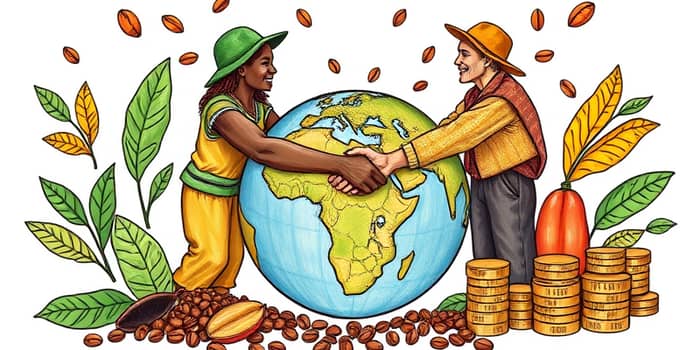
In today’s interconnected markets, the choices we make as investors and consumers resonate across continents. When capital is directed with intention, it can transform entire communities, protect fragile ecosystems, and ensure dignity for producers. Fair trade finance stands at this crossroads, embedding ethical values into the mechanisms of global commerce.
This article explores how investors can harness fair trade principles for both social impact and financial stability, offering a roadmap to responsible wealth creation.
At its core, fair trade finance is built on the conviction that trade should uplift, not exploit. It goes beyond conventional deal-making to ensure that every stakeholder benefits fairly.
These pillars create a system where smallholder farmers, artisans, and cooperatives gain stability and negotiating power. Over time, such stable relationships foster trust, innovation, and the preservation of cultural traditions under threat from mass-market pressures.
Trade finance underpins over 80% of global merchandise trade. As of 2024, the market is valued between USD 54 and 58.5 billion, with projections reaching USD 98 billion by 2031. This growth is fueled by globalization, emerging technologies, and a rising demand for traceable supply chains.
North America accounts for roughly 31% of this market, while emerging economies in Latin America, Asia-Pacific, and Africa are rapidly expanding their share. Major banks and institutions—Citigroup, HSBC, and multilateral development banks—are integrating sustainable trade models into their offerings.
Ethical investing, often guided by ESG (Environmental, Social, Governance) criteria, aligns naturally with fair trade. Both seek to channel capital toward responsible, sustainable projects that yield benefits beyond pure profit.
Investors looking to integrate fair trade into their portfolios can explore:
Through certification standards—Fairtrade International, Rainforest Alliance—investors can verify that their capital supports genuine, long-term development. This reduces risks of greenwashing and builds confidence in measurable outcomes.
Embracing fair trade finance requires deliberate actions:
By following these steps, investors can balance risk and return while making tangible contributions to poverty alleviation and sustainable development.
Despite its promise, fair trade finance faces obstacles:
However, technological advancements—blockchain for traceability, AI-driven risk assessment—are lowering barriers. Financial institutions are increasingly recognizing that long-term, mutually beneficial relationships foster resilience and open new markets.
Looking ahead, the integration of fair trade finance into mainstream portfolios could redefine success metrics in capital markets. No longer measured solely by quarterly earnings, success will encompass positive social and environmental footprints that endure for generations.
Ultimately, fair trade finance offers a path where ethical convictions and financial goals converge. By investing with intention, we can create an economic landscape that values people and planet alongside profit, ensuring that prosperity is shared broadly and equitably.
References













